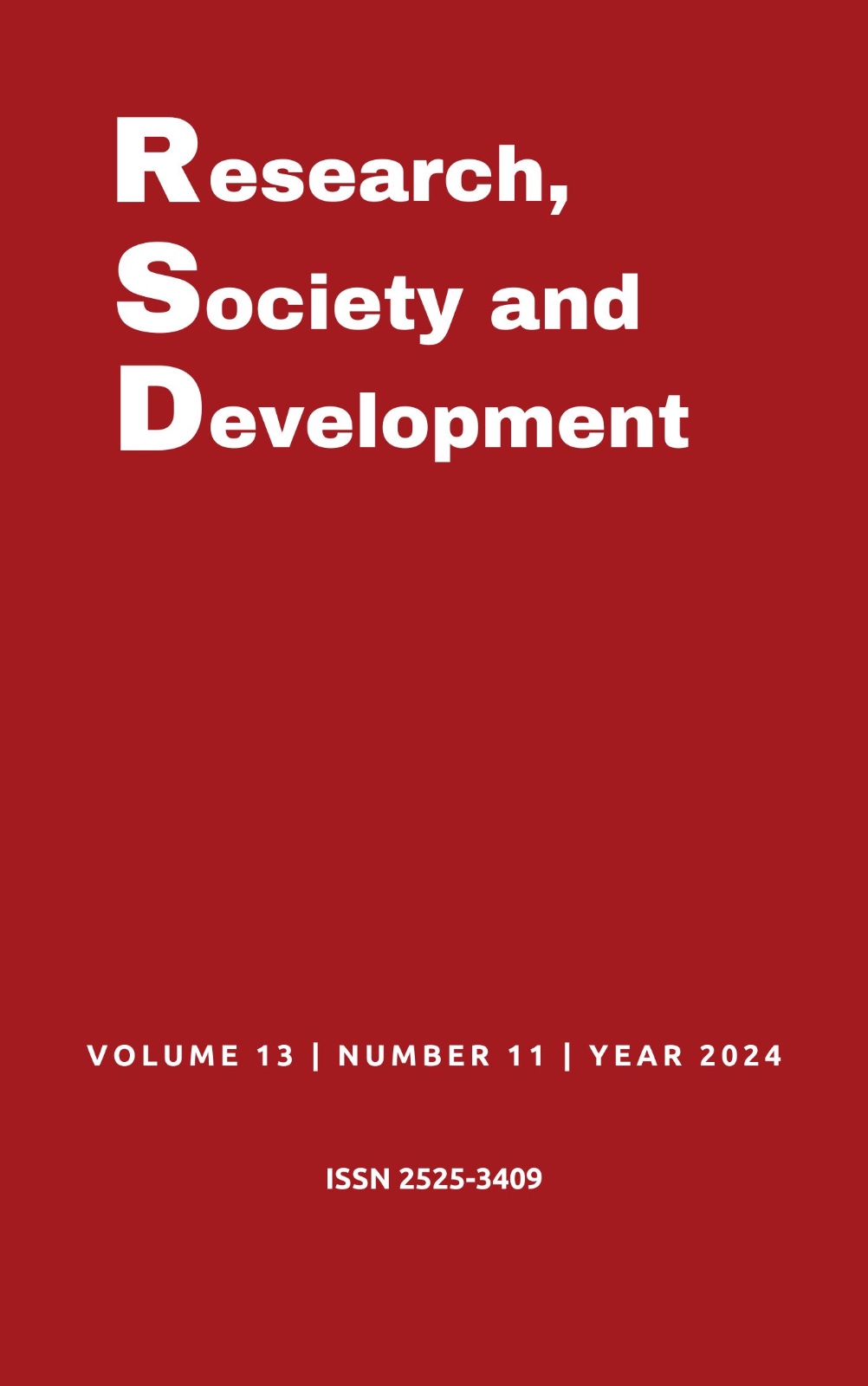An experience report on the effectiveness of Active Methodologies in the pedagogical residency program
DOI:
https://doi.org/10.33448/rsd-v13i11.47380Keywords:
Pedagogical Residency, Active Methodologies, Science, Biology, Science Teaching, Teaching.Abstract
The research lists the experience of the scholarship resident in their initial improvement process and performance as a teacher through the Pedagogical Residency Program (PRP), highlighting the main pedagogical developments in the classroom in this theoretical-practical journey of preparation for teaching. The purpose of the investigation is to list performance when dealing with pedagogical planning, performance in the classroom, student management and the application of active methodologies. Furthermore, identify the opportunities that arose during this period of adaptation in teaching responsibilities and the school environment. In addition to sharing their experience of learning acquired throughout the PRP, the report described here highlights the PRP as an important resource, not only theoretical, but also practical in improving the professional training of the graduate.
References
Ausubel, D. P., Novak, J. D., & Hanesian, H. (1980). Psicologia educacional. Rio de Janeiro: Interamericana.
Bacich, L. & Moran, J. (2018). Metodologias ativas para uma educação inovadora: uma abordagem teórico-prática. Porto Alegre: Penso.
Barros, A. M. D. B. (2024). Manual de trabalhos acadêmico-científicos: relato de experiência. Nova UBM - Centro Universitário de Barra Mansa. Gaia, A. C. A.
Brasil. (1996). Lei de Diretrizes e Bases da Educação Nacional, LDB 9394/1996. https://www.planalto.gov.br/ccivil_03/Leis/l9394.htm
Brasil. (2018). Base Nacional Comum Curricular. Brasília: Ministério da Educação. http://basenacionalcomum.mec.gov.br/
Brasil. (2022). Portaria CAPES nº 82. Dispõe sobre o regulamento do Programa Residência Pedagógica - PRP. https://www.gov.br/capes/pt-br/acesso-a-informacao/acoes-e-programas/educacao-basica/programas-encerrados/programa-residencia-pedagogica
Brasil. (2024). Infecções Sexualmente Transmissíveis (IST). Ministério da Saúde. https ://www.gov .br /saude /pt -br /assuntos /saude-de -a -a -z/i /ist
Chassot, A. (2003). Alfabetização científica: uma possibilidade para a inclusão social. Revista Brasileira de Educação, (22), 89–100.
Gaia, A. C. A. & Gaia, A. R. (2020). Relato de experiência: roteiros para elaboração de trabalhos de conclusão de cursos de licenciatura. Ed. CVR.
Libânio, J. C. (1994). Didática. São Paulo: Cortez.
Mussi, R. F. D. F., Flores, F. F., & Almeida, C. B. D. (2021). Pressupostos para a elaboração de relato de experiência como conhecimento científico. Revista práxis educacional, 17(48), 60-77.
Nascimento, R. D. B. (2019). Atividades experimentais: relato de experiência no ensino de biologia (Dissertação de Mestrado). Universidade Estadual da Paraíba, Campina Grande. http://tede.bc.uepb.edu.br/jspui/handle/tede/3586
Oliveira, M. M. (2013). Sequência Didática Interativa no processo de formação de professores. [s.l.]: Editora Vozes.
Pereira A. S. et al. (2018). Metodologia da pesquisa científica. [free e-book]. Santa Maria/RS. Ed. UAB/NTE/UFSM.
Pereira A. S. et al. (2019). Didática geral [free e-book]. Santa Maria/RS: UFSM, NTE, 2019.
Rodrigues, G. P. P., Palhano, M., & Vieceli, G. (2021). O uso da cultura maker no ambiente escolar. Revista Educação Pública. 21(33). https://educacaopublica.cecierj.edu.br/artigos/21/33/o-uso-da-cultura-maker-no-ambiente-escolar.
Sales, G. F., Brasileiro, C. C., Castro, E. M. M. & Vasconcelos, F. H. L. (2023). Cultura maker no ensino de ciências na educação básica: uma revisão sistemática da literatura. Revista Educar Mais, 7, 444-459. https://periodicos.ifsul.edu.br/index.php/educarmais/article/view/3120
Silva, J. Lima e (2024). Impacto das metodologias ativas no ensino de biologia no ensino médio. Cognitionis - Revista Científica, 7(2), e459. https://doi.org/10.38087/
Souza, J. C. S. & Santos, D. O. dos. (2022). A construção da identidade docente na escola. Revista Educação Pública, 22(23). https://educacaopublica.cecierj.edu.br/artigos/22/23/a-construcao-da-identidade-docente-na-escola.
Teixeira, R. L. P. et al. (2020). Metodologias Ativas. Cap. 1. In: Teixeira et al. Metodologias Ativas. Belo Horizonte: Ed. Poisson, 2020, v. 1, p. 8-12.
Vieira, B. R. & Mello, W. (2023). Potenciais pedagógicos da relação entre a cultura maker e a educação STEM no ensino de biologia. In Las ciencias biológicas y la construcción de nuevos paradigmas de conocimiento (pp. 9-17). Rio de Janeiro: Universidade do Estado do Rio de Janeiro. https://atenaeditora.com.br/catalogo/post/potenciais-pedagogicos-da-relacao-entre-a-cultura-maker-e-a-educacao-stem-no-ensino-de-biologia
Downloads
Published
Issue
Section
License
Copyright (c) 2024 Jarielson Silva Acioli; Delma Holanda de Almeida

This work is licensed under a Creative Commons Attribution 4.0 International License.
Authors who publish with this journal agree to the following terms:
1) Authors retain copyright and grant the journal right of first publication with the work simultaneously licensed under a Creative Commons Attribution License that allows others to share the work with an acknowledgement of the work's authorship and initial publication in this journal.
2) Authors are able to enter into separate, additional contractual arrangements for the non-exclusive distribution of the journal's published version of the work (e.g., post it to an institutional repository or publish it in a book), with an acknowledgement of its initial publication in this journal.
3) Authors are permitted and encouraged to post their work online (e.g., in institutional repositories or on their website) prior to and during the submission process, as it can lead to productive exchanges, as well as earlier and greater citation of published work.


